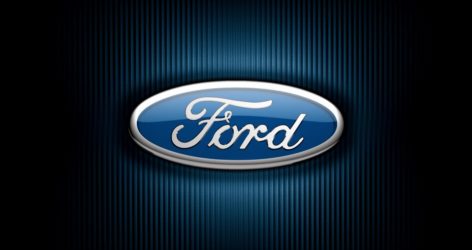
In support of a growing global connectivity initiative, Ford and Datang have successfully conducted Cellular Vehicle-to-Everything technology (C-V2X) trials in China. C-V2X is a wireless communication technology that has the potential to play a key role in the future of advanced connectivity, and improve automotive safety, automated driving and traffic efficiency around the world.
The trials kicked off in late 2017, allowing both companies to continue to analyze the performance of C-V2X technology with the goal of seeing it adopted. The tests assessed the potential in CV2X connected car technology, where communication between wireless infrastructures in cities and connected vehicles will support automated vehicles to operate successfully and improve automotive safety and traffic efficiency. C-V2X technology extends a vehicle’s ability to see, hear and understand the environment down the road, at blind intersections or in bad weather conditions, enabling vehicles, pedestrians and cyclists to collaborate and respond more effectively in potentially hazardous situations.
Ford and Datang conducted the trials at the National Intelligent Vehicle Pilot Zone in Shanghai, the first intelligent connected car demonstration area in China. The tests built on Datang’s extensive work in creating LTE-V2X technology, which is the first phase of C-V2X technology and Ford’s key role in the area of intelligent connected vehicles (ICV) in China. The evaluations were carried out according to industry harmonized test procedures from the 5G Automobile Association (5GAA).
Chinese government has supported and promoted the development of intelligent connected vehicles infrastructure as part of a strategy to harness the economic potential of 5G. As the first stage of 5G, C-V2X is an important step toward the full range of wireless technologies that will help build a complete 5G infrastructure.
“To realize the goal of a future of smart vehicles in smart cities, all technology should be speaking the same language,” said Don Butler, executive director, Connected Vehicle and Services, Ford. “Ford believes C-V2X offers the potential to reduce congestion and road accidents by providing the infrastructure for autonomous vehicles and intelligent safety features.”
V2X technologies will give drivers the tools they need to anticipate potential crashes and significantly reduce the number of lives lost each year, according to the U.S. National Highway Traffic Safety Administration. For example, the technology can be used to provide warnings of potentially hazardous situations and real-time information for making efficient transportation choices, and it can also help optimize traffic flow for a smoother operating city environment.
As a member of the 5GAA, Ford is helping promote the development of C-V2X worldwide. In November 2017, Ford announced trials of the technology in partnership with Qualcomm, AT&T and Nokia in the U.S. The partnership with Datang in China will contribute to the global development of C-V2X technology and help increase the case for its adoption around the world.
Source: Ford

